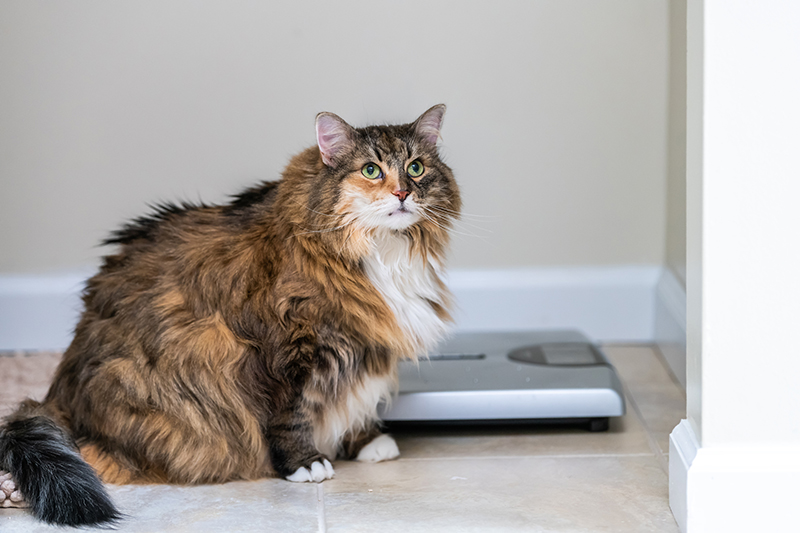Pet Obesity Awareness Day may have passed but feline obesity is an ongoing health issue. To help more clients protect their cats from obesity-related health risks during National Cat Health Month (and every month), here are five tips to share with clients to help keep their cats at a normal healthy weight.
Know Your Cat’s Ideal Weight
Though some online sources say that a cat should ideally weigh 8-10 pounds, a cat’s ideal weight depends on its body frame size. Veterinary practices generally use a body condition scoring system of either 1-5 (with 3 being normal) or 1-9 (with 4.5 being normal). If you’re uncertain whether your cat is at its ideal weight, your veterinarian will be pleased to provide an assessment.
Play With Your Cat
Cats become bored, just like people. In response, they often eat to fill their boredom (also like people). If their dish is empty, they often think, “I’ll go meow until Mom/Dad gives me some food.” And many pet parents cave. Instead, spent time playing with your cat. Break out those fishing-rod toys, laser pointers, or crinkle balls. Or just flick a ball of crunched-up paper across the floor for your cat to chase. Your cat doesn’t care what kind of toy you use. You cat will simply be stoked that it’s playtime with you and burn off a few extra calories in the process.
Use a Food Dispensing Toy
Place some of your cat’s daily dry food into a treat ball or other dispensing toy. Batting around a treat ball provides fun and exercise for a food-motivated cat. Such toys also act as puzzles for cats, both keeping their brains sharp and warding against boredom. Or try hiding pieces of dry cat food around the house to satisfy the hunter in your feline friend.
Weigh Your Cat Regularly
Weigh your cat every 2-3 weeks (or once per month, minimum). Regular weigh-ins are an important part of successful weight-loss programs and keep everyone accountable. Weight Watchers® has been using this principle for decades. To ensure that your cat’s weight loss is neither too rapid nor excessive and to determine when your cat has lost enough weight, it’s important to have your cat’s weight loss assessed by your veterinarian.
Maintain Your Cat’s Weight
Yo-yo weight loss and gain for cats is no healthier than it is for humans. Once your cat has achieved ideal body weight and condition, it’s important to maintain it. Your veterinarian can help you choose appropriate food and provide portion size for weight maintenance. Portion control is critical at this stage to prevent your cat from regaining weight. The benefits of normalizing and maintaining your cat’s weight make the effort more than worthwhile.






